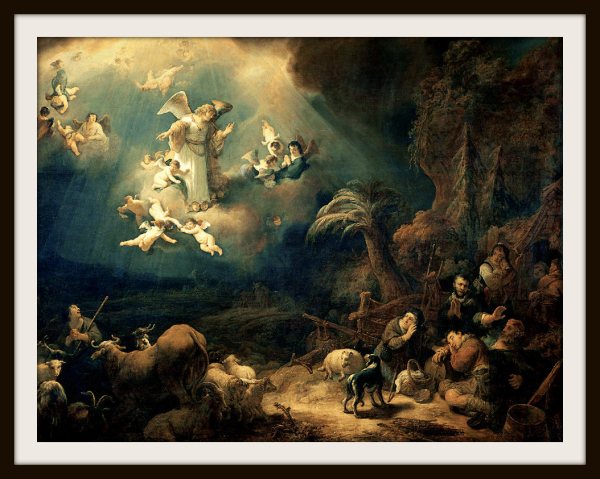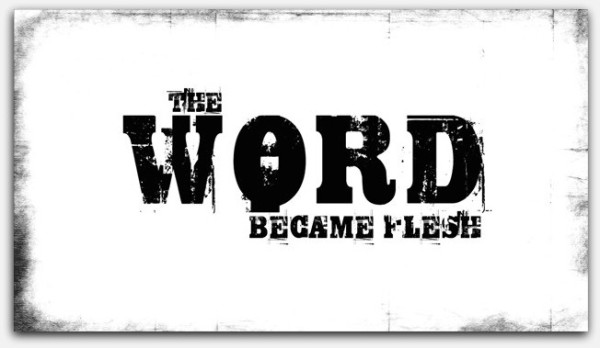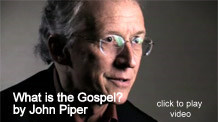Come to Christ

When a person turns to Christ empty—that they may be filled; sick—that they may be healed; hungry—that they may be satisfied; thirsty—that they may be refreshed; needy—that they may be enriched; dying—that they may have life; lost—that they may be saved; guilty—that they may be pardoned; sin-defiled—that they may be cleansed; confessing that Christ alone can supply their need—then they come to Christ. This, and nothing more than this, is coming to Christ.
J.C. Ryle
A Christmas Reflection by Francis A. Schaeffer

“What Difference Has Looking Made?”
Doctrinal clarity matters a great deal; but Luke does not allow his Gospel to end merely with a proper emphasis on the necessity of the great doctrinal truths, and our study should not end there either. Before his ascension Jesus told the disciples “that repentance and remission of sins should be preached in his name among all the nations, beginning at Jerusalem” (Luke 24:47). Orthodox doctrine must be proclaimed.
When the shepherds had seen the baby Jesus, “they made known abroad the saying which was told them concerning this child” (Luke 2:17). Just as the shepherds’ proclamation was spontaneous, carrying out Jesus’ final instructions should be natural to us. If we really believe the truth of the gospel, we should voluntarily declare it. The spontaneity of telling part of the Christmas story.
Yet it is intriguing that the telling is not the final emphasis. The next to the last verse of the Gospel of Luke tells us that the disciples “worshiped him” (Luke 24:52). The doctrinal reality and the telling of it are never allowed to stand alone; in tremendous balance with it exists worship, personal relationship.
The same thing was true in Bethlehem, in this case with the wise men and the baby Jesus, for “they fell down, and worshiped him” (Matt. 2:11). They did not only bring frankincense and myrrh; they really worshiped.
But even worship is not the end of the matter. After Christ’s resurrection and ascension the disciples “returned to Jerusalem with great joy” (Luke 24:52). Joy is part of this, too. Certainly the shepherds were glad. the angel had said to them, “Fear not; for behold, I bring you good tidings of great joy, which shall be to all people. For unto you is born this day in the city of David a Saviour, who is Christ the Lord” (Luke 2:10, 11).
This does not mean a stupid kind of happiness or a sick smile, nor does it mean there are no tears or that things in this world are not as bad as God says they are. This joy is connected with the reality of our knowledge of who Jesus is, our relationship with Him and our worship of Him.
Imagine you are a shepherd on the hillside, and when the heavenly host appears you are not to be afraid; you are to have joy.
It is the same with all the teaching of the Gospel which flows from the event when the shepherds saw and heard the angels, when they ran down the hill and looked upon Jesus. And at the end of Luke’s gospel, while not despising the doctrine or the telling of it, the central thing is worshiping the Lord–not coldly, but with joy. It is tremendous that the closing of the gospel of Luke fits so perfectly with the second chapter: “I bring you good tidings of great joy.” “And they worshiped him…with great joy.”
Francis A. Schaeffer
The In-Fleshing of the Eternal Son of God
What Is the Incarnation?
The incarnation refers literally to the in-fleshing of the eternal Son of God—Jesus becoming a human being. The doctrine of the incarnation says that the eternal second person of the Trinity took on humanity in the person of Jesus of Nazareth. A helpful way to remember the key aspects of the incarnation is John 1:14: “The Word became flesh.”
The Word…
The Word refers to the eternal Son of God who was “in the beginning with God” and who himself is God (John 1:1). From eternity past until he took on humanity, the Son of God existed in perfect love, joy, and harmony in the fellowship of the Trinity. Like the Father and the Spirit, he was spirit and had no material substance. But at the incarnation the eternal Word entered into creation as a human being. He became a first-century Jew.
…became…
Became does not mean that he ceased to be God. In becoming man, he did not forsake his divine nature.It means that he became a man by taking on human nature in addition to his divine nature. It is essential to the incarnation—and very helpful throughout all theology—to recognize that divinity and humanity are not mutually exclusive. The Son of God didn’t have to pick between being God and being man. He could be both at the same time. The eternal Word became a man.
…flesh.
Flesh isn’t merely a reference to the human body but the entirety of what makes up a human being—body, mind, emotions, and will. Hebrews 2:17 and 4:15 teach that to save human beings Jesus had to be made like us “in every respect” except our sin. In the incarnation, everything proper to humanity was united to the Son of God. The Son of God didn’t only become like man; he actually became a true man.
The Word Became Flesh
So the eternal Son of God, without ceasing to be God, took on a fully human nature. This is the incarnation.
And what a magnificent doctrine and fuel for worship this is! Jesus didn’t just become man because he could. He became a man “for us and for our salvation” (in the words of Athanasius). The Word became flesh to save us from our sin and to free us to marvel at and enjoy the unique union of divinity and humanity in his one spectacular person.
The incarnation is not only the way in which Jesus became Immanuel—God with us—but it’s an eternal testimony that he and his Father are unswervingly for us.
John Piper
Christ Is All and In All

“Anything, even if it be the blessed production of the Eternal Spirit of God, which takes the place of Christ, which shuts out Christ from the soul, is dangerous. In the great work of salvation, Christ must be everything or nothing; from Him solely, from Him entirely, from Him exclusively, must pardon and justification be drawn. Whatever, then, rises between the soul and Christ- whatever would tend to satisfy the soul in His absence- whatever would take His place in the affections, must be surrendered. Is it as the plucking out of a right eye? It must be yielded. Is it as the cutting off of a right hand? Let it go. Christ in his Godhead, Christ in his humanity, Christ in his great and finished work, Christ in his mediatorial fullness, must be all in all to the believer.”
Octavious Winslow
The Purpose of Christ’s Birth

“For this I was born, and for this I have come into the world, to bear witness to the truth.” The connection between this and what we have said till now is that the Christ who came into the world to bear witness to the truth is God, and no one can more reliably present the truth than God. For God is the author of all truth and wills to make it known reliably.
If there were two deities—two gods—equally powerful and opposed to each other in conflict for the rule of the world, neither of these deities could be counted on to reveal truth. If their goals were to rule the world and they were threatened by each other, we might well expect that they would use deceit to gain an advantage. And so truth would not be a priority. Not so with the God and Father of our Lord, Jesus Christ. He is the one and only God, and there is none besides him. He is threatened by no one. Even Satan, his archenemy, is completely subordinate with his bounds fixed. Therefore, God has no fault, no weakness, no finitude that he ever needs to hide by deceit. God is so sovereign, so perfect and glorious that the truth will always redound to his honor. Therefore, God is committed to revealing the truth reliably because he wills to be known and glorified for who he really is.
And how better to reveal the truth about God that we might glorify and love him, than to send the Son, the very image and reflection of God, into the world? One time Thomas said to Jesus,
“Lord, we don’t know where you are going. How can we know the way?” Jesus said to him, “I am the way, the truth, and the life; no one comes to the Father but by me. If you had known me you would have known my Father; henceforth you know him and have seen him.” And Philip said to him, “Lord, show us the Father, and we shall be satisfied.” Jesus said to him, “Have I been with you so long and yet you do not know me, Philip? He who has seen me has seen the Father.”
Jesus is the truth because he is the image of the true God. He is the way to the Father because as 1 John 2:23 says, “No one who denies the Son has the Father. He who confesses the Son has the Father also.” You can’t have the Father if you reject the Son. If our heart does not go out in love to Jesus, then we cannot say that we know God. And that would mean that there is no life within us. Because Jesus says in John 17:3, “This is eternal life, that they know thee, the only true God and Jesus Christ, whom thou hast sent.”
So there are two wonderful things implied in the statement, “I have come into the world to bear witness to the truth.” One is that in revealing God, the origin of all truth, Jesus glorified his Father. This is exactly what he says in his prayer in John 17:4, “I glorified thee on earth, having accomplished the work thou gavest me to do.” The work God gave him to do was to testify to the truth, and in doing that God was shown to be very glorious; sovereign in his freedom, marvelous in his power, and beautiful in his moral perfections, especially his mercy to us sinners.
The other wonderful thing implied in Christ’s coming to testify to the truth is eternal life. If, as Jesus said in John 17:3, “This is eternal life, to know thee, the only true God,” then the purpose of Jesus to bear witness to the truth of God must mean that his purpose is to give eternal life. Which is what John 3:17 says: “God sent the Son into the world not to condemn the world, but that the world through him might be saved.”
So, the purpose of Christ’s coming into the world is to testify to the truth of God, so that man might glorify God for who he is and might thereby come to have eternal life.
John Piper
The Freedom of Self Forgetfulness

“The thing we would remember from meeting a truly gospel-humble person is how much they seemed to be totally interested in us. Because the essence of gospel-humility is not thinking more of myself or thinking less of myself, it is thinking of myself less. Gospel-humility is not needing to think about myself. Not needing to connect things with myself. It is an end to thoughts such as ‘I’m in this room with these people, does that makes me look good? Do I want to be here?’ True gospel-humility means I stop connecting every experience, every conversation, with myself. In fact, I stop thinking about myself. The freedom of self forgetfulness.”
Tim Keller
Reversing the Curse: Substitutionary Atonement

“For the essence of sin is man substituting himself for God [Gen. 3:1-7], while the essence of salvation is God substituting himself for man [2 Cor. 5:21]. Man asserts himself against God and puts himself where only God deserves to be; God sacrifices himself for man and puts himself where only man deserves to be.”
John Stott
7 Marks of a Right Heart

1) A right heart is a NEW heart (Ezek. 36:26). It is not the heart with which a person is born—but another heart put in them by the Holy Spirit. It is a heart which has new tastes, new joys, new sorrows, new desires, new hopes, new fears, new likes, new dislikes. It has new views about the soul, sin, God, Christ, salvation, the Bible, prayer, heaven, hell, the world, and holiness. It is like a farm with a new and good tenant. “Old things are passed away. Behold all things are become new” (2 Cor. 5:17).
2) A right heart is a BROKEN and CONTRITE heart (Psalm 51:17). It is broken off from pride, self-conceit, and self-righteousness. Its former high thoughts of self are cracked, shattered, and shivered to atoms. It thinks itself guilty, unworthy, and corrupt. Its former stubbornness, heaviness, and insensibility have thawed, disappeared, and passed away. It no longer thinks lightly of offending God. It is tender, sensitive, and jealously fearful of running into sin (2 Kings 22:19). It is humble, lowly, and self-abased, and sees in itself no good thing.
3) A right heart is a heart which BELIEVES on Christ alone for salvation, and in which Christ dwells by faith (Rom. 10:10; Eph. 3:17). It rests all its hopes of pardon and eternal life on Christ’s atonement, Christ’s mediation, and Christ’s intercession. It is sprinkled in Christ’s blood from an evil conscience (Heb. 10:22). It turns to Christ as the compass-needle turns to the north. It looks to Christ for daily peace, mercy, and grace—as the sun-flower looks to the sun. It feeds on Christ for its daily sustenance, as Israel fed on the manna in the wilderness. It sees in Christ a special fitness to supply all its needs and requirements. It leans on Him, hangs on Him, builds on Him, cleaves to Him, as its physician, guardian, husband, and friend.
4) A right heart is a PURIFIED heart (Acts 15:9; Matt. 5:8). It loves holiness, and hates sin. It strives daily to cleanse itself from all filthiness of flesh and spirit (2 Cor. 7:1). It abhors that which is evil, and cleaves to that which is good. It delights in the law of God, and has that law engraved on it, that it may not forget it (Psalm 119:11). It longs to keep the law more perfectly, and takes pleasure in those who love the law. It loves God and people. Its affections are set on things above. It never feels so light and happy as when it is most holy; and it looks forward to heaven with joy, as the place where perfect holiness will at length be attained.
5) A right heart is a PRAYING heart. It has within it “the Spirit of adoption whereby we cry, Abba Father” (Rom. 8:15). Its daily feeling is, “Your face, Lord, will I seek” (Psalm 27:8). It is drawn by an habitual inclination to speak to God about spiritual things—weakly, feebly, and imperfectly perhaps—but speak it must. It finds it necessary to pour out itself before God, as before a friend, and to spread before Him all its needs and desires. It tells Him all its secrets. It keeps back nothing from Him. You might as well try to persuade a person to live without breathing, as to persuade the possessor of a right heart to live without praying.
6) A right heart is a heart that feels CONFLICT within it (Gal. 5:17). It finds within itself two opposing principles contending for the mastery—the flesh lusting against the spirit, and the spirit against the flesh. It knows by experience what Paul means when he says, “I see a law in my members warring against the law of my mind” (Rom. 7:23). The wrong heart knows nothing of this strife. The strong man armed keeps the wrong heart as their palace, and their goods are at peace (Luke 11:21). But when the rightful King takes possession of the heart, a struggle begins which never ends until death. The right heart may be known by its warfare, quite as much as by its peace.
7) A right heart is HONEST, UNDIVIDED, and TRUE (Luke 8:15;1 Chron. 12:33; Heb. 10:22). There is nothing about it of falsehood, hypocrisy, or image-acting. It is not double or divided. It really is what it professes to be, feels what it professes to feel, and believes what it professes to believe. Its faith may be feeble. Its obedience may be very imperfect. But one thing will always distinguish the right heart. Its religion will be real, genuine, thorough, and sincere.
►Summary:
A heart such as that which I have now described, has always been the possession of all true Christians of every name, nation, people and tongue. They have differed from one another on many subjects—but they have all been of a right heart. Some of them have fallen, for a season, like David and Peter—but their hearts have never entirely departed from the Lord. They have often proved themselves to be men and women laden with infirmities—but their hearts have been right in the sight of God. They have understood one another on earth. They have found that their experience was everywhere one and the same. They will understand each other even better in the world to come. All that have had right hearts upon earth, will find that they have one heart when they enter heaven.
J.C. Ryle
How Does Jesus Come to Newtown?

“We do not have a high priest who is unable to sympathize . . but one who in every respect has been tested as we are.” (Hebrews 4:15)
Mass murder is why Jesus came into the world the way he did. What kind of Savior do we need when our hearts are shredded by brutal loss?
We need a suffering Savior. We need a Savior who has tasted the cup of horror we are being forced to drink.
And that is how he came. He knew what this world needed. Not a comedian. Not a sports hero. Not a movie star. Not a political genius. Not a doctor. Not even a pastor. The world needed what no mere man could be.
The world needed a suffering Sovereign. Mere suffering would not do. Mere sovereignty would not do. The one is not strong enough to save; the other is not weak enough to sympathize.
So he came as who he was: the compassionate King. The crushed Conqueror. The lamb-like Lion. The suffering Sovereign.
Now he comes to Newtown, Connecticut.
- Perfected through suffering. (Hebrews 2:10)
- Hated by the proud. (John 7:7)
- Demonized by the strong. (Matthew 9:34)
- Willingly poor. (2 Corinthians 8:9)
- A man of sorrows and acquainted with grief. (Isaiah 53:3)
- Planning to be crushed. (Isaiah 53:5)
- Despised and rejected. (Isaiah 53:3)
- Ready to be wounded. (Isaiah 53:5)
- Submissive like a lamb led to the slaughter (Isaiah 53:7)
- Enduring anguish. (Isaiah 53:11)
- Poured out in death. (Isaiah 53:12)
- Risen to help. (Romans 14:7–9)
The God who draws near to Newtown is the suffering, sympathetic God-man, Jesus Christ. No one else can feel what he has felt. No one else can love like he can love. No one else can heal like he can heal. No one else can save like he can save.
John Piper
Read John Piper’s most recent post, “A Lesson for All from Newtown”.
5 Gospel Warnings

1. Substitute anything for Christ, and the Gospel is totally spoiled!
2. Add anything to Christ, and the Gospel ceases to be a pure Gospel!
3. Put anything between a person and Christ, and that person will neglect Christ for that very thing!
4. Spoil the proportions of Christ’s Gospel, and you spoil its effectiveness!
5. Evangelical religion must be the Gospel, the whole Gospel and nothing but the Gospel!
J.C. Ryle
For Your Ultimate Good

“The One who has done the greatest thing of all for you, must be concerned about you in everything, and though the clouds are thick and you cannot see His face, you know He is there. ‘Behind a frowning providence He hides a smiling face.’ Now hold on to that. You say that you do not see His smile. I agree that these earth born clouds prevent my seeing Him, but He is there and He will never allow anything finally harmful to take place. Nothing can happen to you but what He allows, I do not care what it may be, some great disappointment, perhaps, or it may be an illness, it may be a tragedy of some sort, I do not know what it is, but you can be certain of this, that God permits that thing to happen to you because it is ultimately for your good. ‘Now no chastening for the present seems to be joyous, but grievous; nevertheless afterward it yields the peaceable fruit of righteousness…’ (Hebrews 12. 11).”
Martyn Lloyd-Jones
Sit Humbly Under the Word

“We need to repent of the haughty way in which we sometimes stand in judgment upon Scripture and must learn to sit humbly under its judgments instead. If we come to Scripture with our minds made up, expecting to hear from it only an echo of our own thoughts and never the thunderclap of God’s, then indeed he will not speak to us and we shall only be confirmed in our own prejudices. We must allow the Word of God to confront us, to disturb our security, to undermine our complacency and to overthrow our patterns of thought and behavior.”
John Stott
The Master

“Our faith is a person; the gospel that we have to preach is a person; and go wherever we may, we have something solid and tangible to preach, for our gospel is a person. If you had asked the twelve Apostles in their day, ‘What do you believe in?’ they would not have stopped to go round about with a long sermon, but they would have pointed to their Master and they would have said, ‘We believe him.’ ‘But what are your doctrines?’ ‘There they stand incarnate.’ ‘But what is your practice?’ ‘There stands our practice. He is our example.’ ‘What then do you believe?’ Hear the glorious answer of the Apostle Paul, ‘We preach Christ crucified.’ Our creed, our body of divinity, our whole theology is summed up in the person of Christ Jesus.”
C.H. Spurgeon
Go Tell

“Tell the young, tell the poor, tell the aged, tell the ignorant, tell the sick, tell the dying — tell them all about Christ. Tell them of His power, and tell them of His love; tell them of His doings, and tell them of His feelings; tell them what He has done for the chief of sinners; tell them what He is willing to do until the last day of time; tell it to them over and over again. Never be tired of speaking of Christ. Say to them broadly and fully, freely and unconditionally, unreservedly and undoubtingly, ‘Come unto Christ, as the penitent thief did; come unto Christ, and you shall be saved.'”
J.C. Ryle









